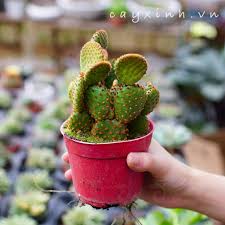
In traditional medicine and cultures around the world, food has always been seen as more than just a source of nutrition. It is also regarded as a powerful tool to heal the body, prevent illness, and boost overall wellness. Whether through the use of herbal ingredients, medicinal roots, or nutrient-dense vegetables, cooking with healing properties can enhance your health in a natural and holistic way.
In this guide, we will explore how to prepare foods that have medicinal benefits, supporting your health and helping to prevent chronic diseases. From using anti-inflammatory ingredients to boosting immunity with specific herbs and spices, the art of healing through food is a powerful and accessible practice. Whether you’re looking to strengthen your immune system, detoxify your body, or improve your digestion, incorporating these healing foods into your diet is a simple yet effective step towards better health.
1. The Healing Power of Food: Understanding Food as Medicine
Food is much more than just fuel for the body; it’s an integral part of maintaining good health and preventing disease. In many ancient healing traditions, including Traditional Chinese Medicine (TCM) and Ayurveda, food is considered medicine. These cultures emphasize the importance of balancing the body’s energy, organs, and functions through the consumption of specific foods.
For instance, foods that are rich in antioxidants, vitamins, and minerals can help the body combat oxidative stress and inflammation, both of which are known contributors to chronic conditions such as heart disease, diabetes, and cancer. Similarly, certain foods support digestive health, detoxification, and the immune system, strengthening the body’s ability to fight off illnesses.
By understanding the medicinal properties of food, you can easily create meals that not only nourish your body but also help it to heal and thrive.
2. Healing Foods for Boosting Immunity
A strong immune system is essential for protecting the body against infections and illnesses. A well-balanced diet filled with immune-boosting foods can keep your body resilient and ready to fight off harmful pathogens. Below are some key ingredients that help boost immunity:
A. Garlic: A Natural Antibiotic
Garlic has been used for centuries as a natural remedy to treat various health conditions. It is rich in compounds such as allicin, which have powerful antibacterial, antiviral, and antifungal properties.
How to Use Garlic:
- Garlic Soup: Boil a few cloves of garlic with ginger, onions, and a pinch of turmeric. This hearty soup can help fight off colds and boost your immune system.
- Raw Garlic: Crushing raw garlic and letting it sit for a few minutes activates its healing properties. You can add it to salads, dressings, or smoothies.
B. Ginger: A Natural Anti-Inflammatory
Ginger is another powerful ingredient known for its anti-inflammatory and antioxidant properties. It is commonly used to relieve nausea, support digestion, and strengthen the immune system.
How to Use Ginger:
- Ginger Tea: Steep a few slices of fresh ginger in hot water with honey and lemon for a soothing drink that can calm your stomach, reduce inflammation, and provide immune support.
- Ginger in Stir-Fry: Add fresh ginger to stir-fries for an extra boost of flavor and health benefits.
C. Citrus Fruits: Rich in Vitamin C
Citrus fruits such as oranges, lemons, limes, and grapefruits are packed with vitamin C, a vital nutrient known for its immune-boosting properties. Vitamin C helps stimulate the production of white blood cells, which play a key role in fighting off infections.
How to Use Citrus Fruits:
- Fresh Juices: Squeeze fresh lemon or orange juice into your water or tea to start your day with a vitamin C boost.
- Citrus Salad: Combine citrus fruits with leafy greens, avocado, and nuts to create a refreshing and immune-supporting salad.
3. Foods to Improve Digestion and Gut Health
Gut health plays a critical role in overall wellness. A healthy digestive system helps absorb essential nutrients and supports the immune system. Many foods can aid digestion by promoting the growth of good bacteria in the gut and reducing inflammation. Here are some of the best foods for digestive health:
A. Fermented Foods: Rich in Probiotics
Fermented foods are rich in probiotics, which are beneficial bacteria that support gut health. Examples include yogurt, kefir, kimchi, sauerkraut, miso, and kombucha. These foods help restore balance to the gut microbiome, improve digestion, and support the immune system.
How to Use Fermented Foods:
- Kimchi or Sauerkraut: Incorporate these fermented vegetables into your meals to boost your gut health. They can be added to sandwiches, salads, or served as a side dish.
- Kefir or Yogurt: Enjoy a bowl of kefir or yogurt with fresh fruit, honey, and nuts for a healthy and digestion-friendly snack.
B. Fiber-Rich Foods: Promote Healthy Digestion
Fiber plays an essential role in maintaining a healthy digestive system. It helps regulate bowel movements, prevent constipation, and keep the gut clean. High-fiber foods include fruits, vegetables, whole grains, legumes, and seeds.
How to Use Fiber-Rich Foods:
- Oatmeal: Start your day with a bowl of oatmeal, topped with chia seeds, flaxseeds, or berries for an extra fiber boost.
- Lentil Soup: Prepare a nourishing lentil soup that includes vegetables such as carrots, spinach, and tomatoes. This high-fiber meal promotes healthy digestion and is easy to digest.
C. Ginger and Peppermint: Soothing for the Stomach
Both ginger and peppermint have soothing properties that can alleviate digestive discomfort, reduce bloating, and ease nausea.
How to Use Ginger and Peppermint:
- Peppermint Tea: Brew a calming cup of peppermint tea to help with indigestion and bloating.
- Ginger and Mint Smoothie: Blend fresh ginger, mint, spinach, and fruit into a delicious and gut-friendly smoothie.
4. Foods for Detoxification
Detoxification is a natural process the body undergoes to rid itself of toxins. While the body has its own detoxification mechanisms through the liver, kidneys, and digestive system, certain foods can help enhance these processes.
A. Leafy Greens: Natural Detoxifiers
Leafy greens like spinach, kale, and arugula are packed with antioxidants, fiber, and essential nutrients. They support the liver’s natural detoxification process and help cleanse the body of harmful substances.
How to Use Leafy Greens:
- Green Smoothie: Blend kale or spinach with fruits like apples, bananas, and berries for a nutritious detox smoothie.
- Salads: Add leafy greens to your salads and top with a simple lemon-olive oil dressing for a cleansing and refreshing meal.
B. Beets: Support Liver Health
Beets are known for their detoxifying properties. They contain betaine, a compound that helps support liver function and promotes the removal of toxins from the body.
How to Use Beets:
- Roasted Beets: Roast beets with olive oil, garlic, and a pinch of salt for a simple and detoxifying side dish.
- Beetroot Juice: Make fresh beetroot juice to stimulate liver function and support detoxification.
C. Green Tea: Full of Antioxidants
Green tea is rich in antioxidants, particularly catechins, which help neutralize free radicals and promote detoxification.
How to Use Green Tea:
- Green Tea: Drink a cup of green tea in the morning or afternoon to benefit from its detoxifying properties.
- Green Tea Smoothie: Incorporate green tea into your smoothies for an antioxidant-rich drink.
5. Anti-Inflammatory Foods for Chronic Disease Prevention
Chronic inflammation is a leading cause of many diseases, including arthritis, heart disease, and diabetes. Incorporating anti-inflammatory foods into your diet can help reduce inflammation and prevent these conditions.
A. Turmeric: The Golden Spice
Turmeric contains curcumin, a compound known for its potent anti-inflammatory properties. It has been used for centuries in traditional medicine to treat pain, inflammation, and various health conditions.
How to Use Turmeric:
- Turmeric Latte (Golden Milk): Warm milk or a dairy-free alternative and whisk in turmeric, black pepper, and honey for a soothing anti-inflammatory drink.
- Curries and Soups: Add turmeric to curries, soups, and stews for both flavor and anti-inflammatory benefits.
B. Berries: Rich in Antioxidants
Berries like blueberries, raspberries, and strawberries are rich in antioxidants and vitamins that help reduce oxidative stress and inflammation.
How to Use Berries:
- Berry Smoothie: Blend berries with almond milk, chia seeds, and a banana for an antioxidant-rich smoothie.
- Berry Salad: Combine fresh berries with leafy greens and a drizzle of olive oil for a healthy and anti-inflammatory salad.
6. Conclusion: Cooking for Health and Wellness
Preparing healing foods can be a simple yet powerful way to support your health and well-being. By incorporating these nutrient-dense ingredients into your daily meals, you can strengthen your immune system, improve digestion, detoxify your body, and reduce inflammation. Each ingredient offers unique medicinal properties that work together to promote balance and vitality in the body.
Whether you’re making a batch of garlic soup to fight off a cold, blending a green tea smoothie for antioxidants, or roasting beets to cleanse your liver, the healing power of food can make a significant difference in your overall health. Embrace these healing foods in your diet, and enjoy the benefits of
natural wellness and vitality.










